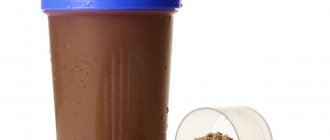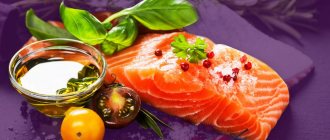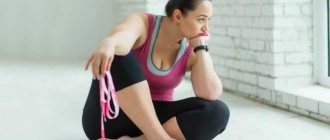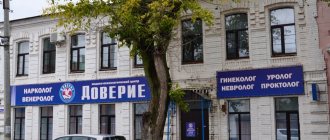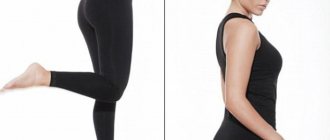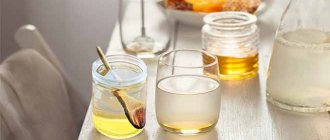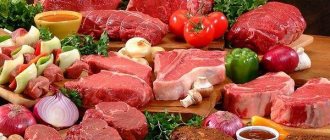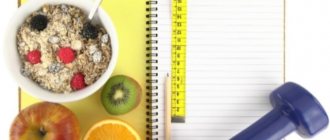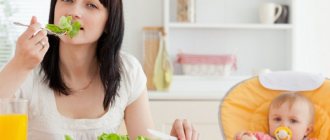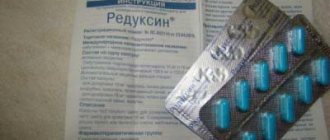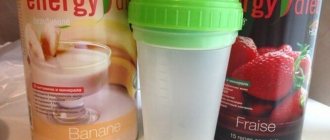In fact, the problem of eating before and after training for weight loss is greatly overrated. In reality, what matters is how much and what you eat during the day, and whether you maintain a daily and, more importantly, a weekly calorie deficit, and not a specific set of foods. Secret knowledge about certain types of food came from competitive bodybuilding. And there, as you know, the goals are different, and the motivation will be stronger than losing 5 kg for a new dress. In general, there will be no harm from following well-known recommendations. But other factors need to be taken into account.
Food before training
It is believed that physical activity done in the morning on an empty stomach is most effective. After all, then the body begins to consume energy not from the food it has just received, but from fat reserves.
It is clear that such a task will be beyond the capabilities of many, and besides, it is possible to faint from “hungry”. To avoid such phenomena, you can have breakfast half an hour before training, but not with heavy food. The ideal option would be carbohydrate foods. For example, you can drink a cup of coffee or green tea without added sugar and snack on bread or a banana. A glass of kefir, berry juice or cocoa is also suitable.
As for training during the day, it is recommended to eat a hearty meal before it. At the same time, you should not overeat immediately before the activity itself; it is best to have a meal an hour and a half in advance. Here you will need carbohydrates again, this time complex ones: pasta, boiled rice, oatmeal. The body must receive enough food and prepare for hard work.
But if you had to skip lunch, then, as in the case of morning workouts, you can have a snack half an hour before class with a light carbohydrate food - a banana or dried fruit.
Under no circumstances should you eat just before the start of classes. The fact is that the food that has just arrived will begin to be digested more slowly during training, since all the blood will be directed to the muscles. Such an imprudent attitude towards the body usually leads to poor health during exercise - nausea begins, heaviness in the stomach appears.
We recommend reading about losing weight by drying your body. You will learn about the similarities and differences between drying the body and losing weight, contraindications, food choices, sample menus, results. And here is more information about protein shakes for weight loss.
Who can do without specialized nutrition before, after and during training?
The answer will disappoint the majority of those interested - physical educators. Those who do not play sports professionally and stay within 5-6 workouts for endurance sports (running, dancing, swimming, cycling), or do not lift significant weights in their strength training (these are those that start from 1 body weight, do not necessarily “100 kg at any cost”), or does not use high-volume strength training techniques. In general, this is where most of the visitors to fitness clubs of both sexes end up, by the way.
For an athlete working on endurance with the main goal of losing weight, the scheme is as follows:
- morning workout - either on an empty stomach or after a breakfast rich in protein, but not carbohydrates (cottage cheese, eggs, some vegetables). After breakfast, about a couple of hours should pass so that the food does not hang in a lump in the stomach. If this is unrealistic, but you want to eat - a protein shake, preferably an isolate or a multi-component protein that is “for weight loss”. After training - immediately 10-20 g of simple carbohydrates (about half an apple) and 18-20 g of protein (1/2 pack of cottage cheese, for example). After 2 hours - a full meal, usually lunch;
- evening training – before training, the last meal should take place 1-2 hours before and be exclusively protein. After that - protein and vegetables.
For those who are not losing weight, but working on endurance, complex carbohydrates are added to the pre-workout meal, 1 serving of porridge, for example. But this is if the workout is 2 hours after eating. If less, drink a protein-carbohydrate cocktail, where 4 parts carbohydrates account for 1 part protein. After training - about 20-40 g of simple carbohydrates and about 10-20 g of protein.
During endurance training, only those who are preparing for a marathon, triathlon or dancing for more than 2 hours in a row “eat”. In this case, sugary drinks are usually used, giving the body about 10-20 g of simple carbohydrates, or carbohydrate gels from sports nutrition stores. Fruits are not usually eaten for one simple reason - they somehow need to be digested, which reduces productivity.
The drinking regime is determined individually. It is usually recommended to drink about 200-300 ml of water per hour, and then drink as needed. However, in individual sports there may be other recommendations.
Post-workout nutrition for weight loss
Some regular gym goers believe that you shouldn't stress too much about eating before exercise. The main thing is not to eat a lot of protein, but otherwise everything is quite simple. But you should think more about nutrition after training. After all, it determines how quickly the extra pounds go away.
There is a common belief that the ideal post-workout diet is to not eat at all for the next couple of hours. This is explained by the fact that during exercise the body begins to actively burn fat, which it considers as a source of energy. At the same time, the body begins to work so hard on its own weight loss that even within two hours after the end of the workout, excess deposits still continue to disappear.
If you let the body finish what it started, the effect will be colossal: fat will be burned not only during the workout itself, but also after it. If you start eating immediately after exercise, the body will switch to energy from incoming food and stop using existing reserves.
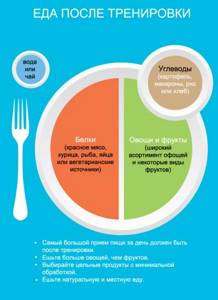
Experienced sports fans claim that this type of nutrition after training only exhausts the body, so it is better to eat soon after exercise. To maintain the results of the effort expended and at the same time not to gain back the kilograms you just lost, you should restore only half of the calories expended. For example, if 700 kcal were burned during exercise, then you only need to eat 350 kcal.
Post-workout nutrition should be balanced. The best ratio is considered to be 60:40, depending on the activity: for strength training – 60% protein and 40% carbohydrates, and for aerobic training – exactly the opposite. In this case, it is imperative to reduce fat consumption to a minimum, and eliminate caffeine, which is included in coffee, tea and chocolate, altogether. The second is especially harmful after training because it prevents the body from absorbing proteins and carbohydrates.
As for fat, its consumption only helps to replenish existing reserves and inhibits the flow of nutrients from the stomach into the blood.
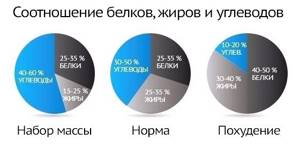
To get the most out of your weight loss workouts, you should eat the same way you would for muscle building. The only difference will be that it is necessary to reduce the daily calorie intake by 500 - 1000 kcal. In addition, you shouldn’t immediately throw them all into yourself in one sitting. It is better to take several meals, but in small portions.
Dependence of diet on time and type of training
If the class takes place in the first half of the day, eat more carbohydrates (but no flour or sweet foods!).
You should pay special attention to nutrition after an evening workout intended for weight loss. The closer to the evening your activity is, the more protein and less carbohydrates your dinner should contain. You don't need extra energy at night, but protein will help restore muscles. In addition to lean protein foods, you can consume some fiber. For example, drink kefir with rye bran.
Nutrition after aerobic training should be aimed at replenishing energy, since cardio exercises for weight loss require high intensity exercise. Your diet should consist of 60% carbohydrates and 40% proteins.
And nutrition after a strength training intended for weight loss is designed to restore muscles and in this case should contain 40% carbohydrates and 60% proteins.
How to properly create a menu after strength and aerobic exercise
When choosing a diet aimed at helping the body lose excess weight after training, one should be guided by a certain proportional ratio of all substances entering the body. The optimal option is: 30% protein, 10% fat and most of all carbohydrates – 60%.
What foods you should choose after a workout depends on the type of workout. For example, aerobic exercise requires more carbohydrates. And for strength training aimed at increasing and strengthening muscles, protein plays a vital role.
For information on nutrition before and after training, watch this video:
Aerobic exercise
You should not eat immediately after physical activity. It is better to have dinner after 30 - 40 minutes. From products you need to choose those that contain a small amount of protein and fairly slow carbohydrates. Thus, after aerobic training, you can eat one of these for dinner:
- dairy products;
- meat fish;
- various cereals;
- soybeans, beans, lentils;
- apples.
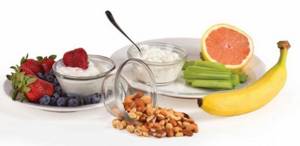
You can also eat vegetables that do not contain starch after aerobic exercise. For example, it is not forbidden to make a light salad from cucumber, celery, sweet pepper, parsley or dill.
After training, it is also necessary to provide the body with sufficient fluid. Some time after class, you can drink half a liter of water, but not immediately, but in small portions.
Power load
For strength training, the most important thing is to increase muscle mass. As a result of physical activity, micro-tears of muscle tissue occur, so it needs to be restored. To do this, you need to consume foods containing large amounts of protein.
Meat and plant products are especially rich in this substance. However, the amount of protein in these types of food differs. There is more of it in meat than in vegetation. In addition, animal products contain a type of protein that is not produced by the body itself.
Those products that contain this substance in sufficient quantities and are recommended for consumption after training include:
- meat, poultry, fish;
- dairy products;
- eggs or omelet;
- legumes;
- nuts;
- pasta;
- bran bread;
- Brown rice.
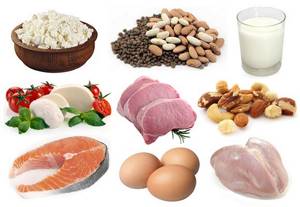
It is important not to overuse protein foods. The fact is that after an intense power load, the body absorbs only 30 grams of the substance. If the norms are exceeded, then your health may deteriorate: bloating, overload of the kidneys and liver.
As for carbohydrate products, you should choose those with a lower glycemic index. It is this type of food that is absorbed by the body faster, preventing insulin from turning excess calories into fat. For weight loss, foods with a glycemic index below 50 are suitable. Thus, after strength training you can eat:
- oatmeal and buckwheat porridge;
- peas, lentils, beans;
- pasta;
- fresh vegetables and fruits.
What remains is the very last element the body needs – fat. It is better to minimize its consumption and choose vegetable fats contained in seeds and nuts.
For information on nutrition before and after strength training, watch this video:
How to eat properly when training
Without proper nutrition, you will not be able to get rid of the subcutaneous fat layer and increase muscles in order to achieve body definition, even if you spend a lot of energy. Nutrition during training for weight loss or during strength training must be organized according to certain principles. The diet is compiled in accordance with your training goals, so it will be different when cutting, gaining weight, or simply staying in shape. For proper nutrition you need only high-quality products.
Principles and features
To achieve the goal, the athlete needs to consume at least 2-3 liters of clean water per day. You cannot refuse to drink while playing sports, because... The body should not be dehydrated. You can create a specific schedule and calculate calorie intake in advance, especially if you plan to lose weight. Here are some important principles of proper nutrition for training:
- Muscle growth is only possible if the amount of calories consumed through food is greater than the amount of calories burned during exercise. Otherwise, the lack of calories will negatively affect muscle mass, which will lead to exhaustion of the body.
- Don't forget about proteins, carbohydrates, and fats. The key “building” material for muscle fibers is protein. Carbohydrates are considered a source of energy, which is needed not only by the body, but also for the construction of new cells. As for fats, their amount needs to be reduced, but they should not be completely removed from the diet.
- Fractional meals are important. It is advisable to stick to 5-6 meals a day.
Proteins, fats and carbohydrates in an athlete’s diet
Pay attention to the ratio of BJU (proteins, fats, carbohydrates). For each situation, the parameters will be individual, but on average for people involved in fitness, they will be equal to 25:25:50% for girls and 25:15:60% for guys. Please note that:
- The largest amount of protein is found in low-fat cottage cheese, fish, eggs, chicken, and turkey.
- Thanks to carbohydrates, the body will receive the necessary energy for sports activities. Their reliable sources are fresh vegetables, fruits, durum wheat pasta, rice, buckwheat and oatmeal.
- Fat consumption will have to be kept to a minimum - preferably up to 15%. They contain substances that help create the necessary conditions for muscle growth. It is advisable to give preference to fats of vegetable origin.
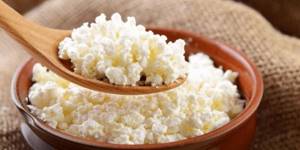
Proper evening diet for men and women
There is no difference in foods you can eat after a workout based on gender. The only discrepancy between the dinner options for men and women is the number of calories needed and portion size.
Thus, representatives of the stronger sex who are actively involved in sports need to consume approximately 2600 - 2800 kcal per day. At the same time, do not forget that in order to lose weight, the norm should be reduced. As for the weaker sex, for girls it is enough to receive 1200 kcal per day, while losing extra pounds.
Dinner after training, for both men and women, should definitely include protein foods, some carbohydrates and water. As the body undergoes heavy physical work, it needs to restore its fluid supply.
As one of the options, you can use a specific selected dinner diet. It is suitable for both genders. The choice should be made on one of the versions of the meal, consisting of protein dietary products:
- low-fat cottage cheese, dried fruits and protein shake;
- stewed or baked fish with fresh carrot and cabbage salad;
- two fresh fruits (apple, orange, pear) and a protein shake;
- porridge and low-fat cottage cheese;
- boiled turkey or chicken fillet with vegetable salad.
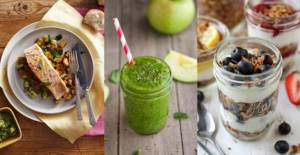
If the workout takes place very late in the evening, and an hour and a half after it is time to go to bed, you should not eat anything serious. It is recommended to limit yourself to a mug of kefir; it will help restore protein reserves in the body.
Myth 4. You should eat immediately after training.
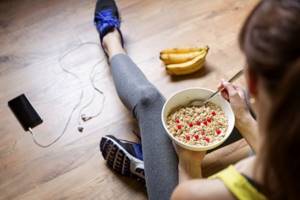
Immediately after a workout, your body craves food to fuel muscle growth. Scientific data. After training, catabolic processes predominate in the body. For anabolism to take place, food intake must contain protein. Carbohydrates by themselves do not promote anabolic processes. Eating protein will speed up muscle protein synthesis after exercise. However, complex foods (proteins, fats, carbohydrates) will be more beneficial if eaten at least an hour after exercise. According to a study by B. Rasmussen, the results of which were published in the article “Oral Supplementation with Essential Amino Acids and Carbohydrates Enhances Muscle Protein Anabolism Following Resistance Exercise,” muscle protein synthesis was significantly increased by consuming a carbohydrate drink with amino acids for 1 to 3 hours after exercise.
However, it is unknown whether this effect is maintained throughout the day. Muscle growth depends on the total daily calorie intake. It is not necessary to eat for 1-3 hours after training. Post-workout eating is not as important as people think. Muscle protein synthesis increases much more if essential amino acids and carbohydrates are consumed before exercise rather than after, and total (daily) protein intake is a more important factor in muscle growth than a post-workout protein shake, says K. Tipton in his work "Time consuming amino acids and carbohydrates changes the anabolic response of muscles to strength exercise." Thus, the total amount of calories and protein consumed throughout the day is more important for muscle gain than the post-workout meal.
What to do if you really want to eat after training
Often after active physical work you feel very hungry, but you no longer have the strength to fight it. This is a normal reaction of the body, because during training it spends a huge amount of energy, which it wants to replenish later. In this case, you shouldn’t exhaust yourself, but it’s better to refresh yourself a little.
Of course, you shouldn’t load up on high-calorie foods. You can try to significantly reduce your hunger with some foods:
- Kefir. It is better to prefer low-fat so as not to harm your figure after exercise. Half a liter of this fermented milk product is usually enough to curb your appetite.
- Green tea, berry juice or cocoa. Often, an empty stomach can be “tricked” by simply giving it liquid instead of food. In addition, such drinks will not only quench your thirst after a workout, but also provide the body with healthy microelements.
- Fresh apple. Its calorie content is very low and will not affect your figure in any way - only 45 kcal. It is better to choose a large fruit, this will allow you to get full faster.
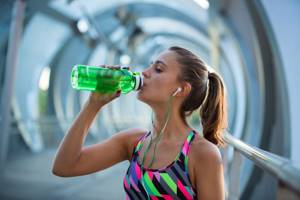
Basic nutrition tips for losing weight
As a generalization, we can highlight recommendations that, if followed, will help you lose extra pounds through training as quickly as possible. These tips will be useful for both those who engage in aerobic exercise and those who want to build muscle mass while burning fat. So, a list of the main characteristics of proper nutrition after training:
- You should eat often and in small portions. The optimal amount of food per meal is the same size as a fist.
- You will have to remove the following foods from your diet: sweets, flour and fatty foods.
- If you want to get in shape, it is better not to eat three hours before bedtime, as the stomach will not have time to digest the food.
- From drinks it is better to choose tea without sugar, compote, cocoa, fruit juice. They will not only restore fluid balance, but also saturate the body with useful substances.
- Particular attention should be paid to foods high in protein - eggs, meat (without fat), cottage cheese and legumes.
We recommend reading about what a cheat meal is for weight loss. You will learn about what a cheat meal is, the rules and purposes of its implementation, the benefits and harms of a cheat meal. And here is more information about various smoothie recipes for weight loss.
To quickly get closer to your dream figure, you need to not only actively engage in sports, but also eat right. Otherwise, the body will only continue to store fats, which are already sufficient. Therefore, it is very important not to overeat before training, eat only light food. But after exercise, the body should be provided with a sufficient amount of energy, helping to recover.
Useful video
Watch this video about healthy diet dishes for weight loss:
Similar articles
- Losing weight by drying the body: what menu is suitable, choose...
Quite complex weight loss by drying the body is not suitable for everyone. For example, in girls it can provoke changes in the menstrual cycle. The menu is quite monotonous, the food is mainly protein products and vegetables. Read more - Protein shakes for weight loss: recipes for...
Initially, protein shakes were used only by athletes for weight loss. However, nutritionists noticed fat-burning properties in them and offered recipes for preparing them at home after workouts. Read more
- Diet of Inna Volovicheva: rules for creating a menu for...
The rules for creating a menu for 7 or 30 days were invented by the Dom-2 participant independently. Inna Volovicheva's diet involves many restrictions and calorie control at the first stage. How can I use her advice to lose weight forever? Read more
